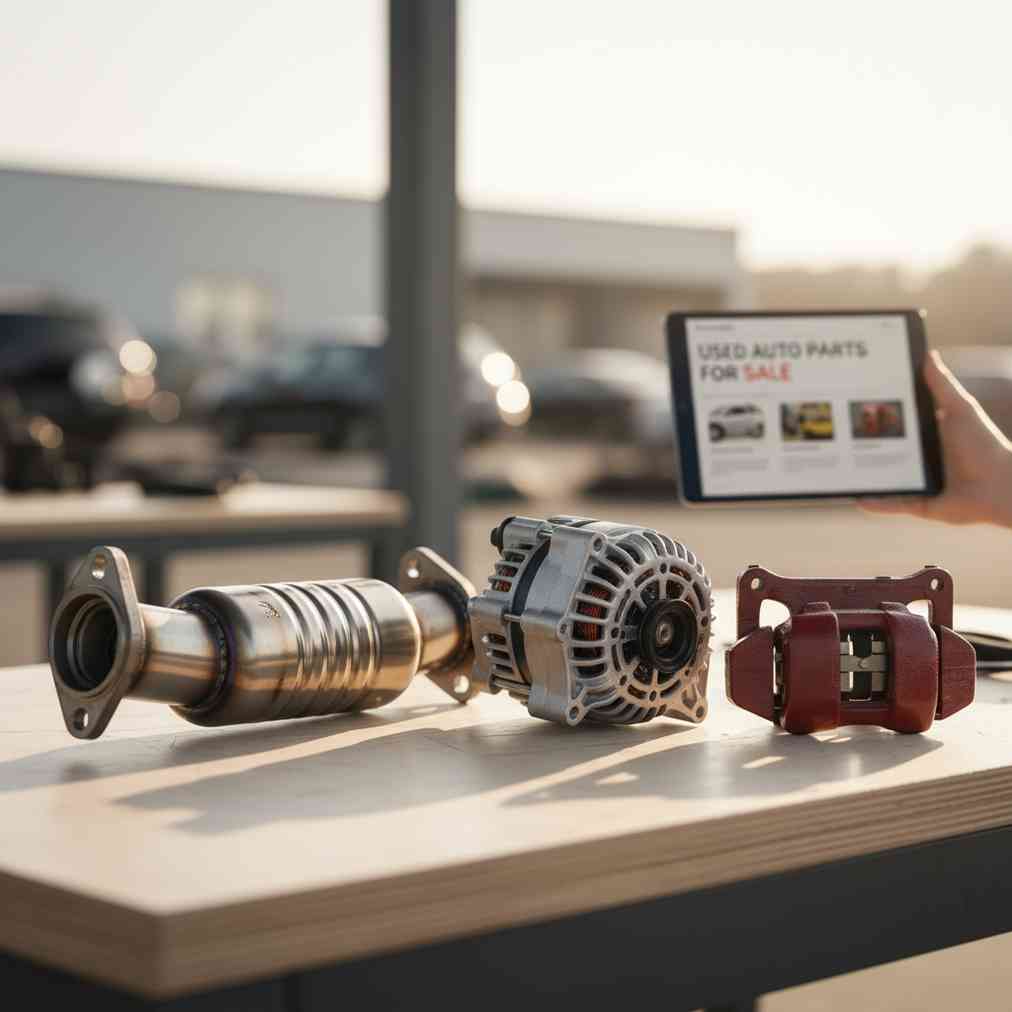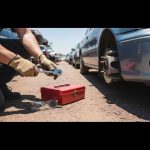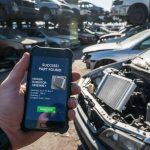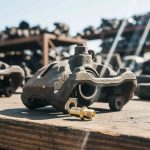Understanding Your Junk Car’s True Value
When most people think about selling a junk car, they assume it’s only worth scrap metal prices. However, the reality is that junk cars can be worth significantly more than their weight in metal. The value of a junk car typically ranges from $100 to over $2,500, with most vehicles fetching between $300 and $700. Understanding what makes your vehicle valuable is the first step toward maximizing your return.
Several factors influence your junk car’s worth beyond just scrap metal value. Intact valuable parts like catalytic converters, batteries, alternators, and electronics can add hundreds to your final payout. Popular vehicle models often command higher prices due to parts demand, and newer vehicles typically have more valuable components that buyers actively seek.
Essential Preparation Steps for Maximum Value
Complete Vehicle Cleaning and Assessment
Even junk cars benefit from a thorough cleaning before sale. A clean vehicle suggests better maintenance and can attract more serious buyers. Clean both the interior and exterior, paying special attention to the dashboard, windows, and any functional components. This small investment in time can potentially increase offers by demonstrating care and attention to detail.
During cleaning, conduct an honest assessment of your vehicle’s condition. Document all visible damage, note which systems work and which don’t, and be prepared to disclose this information to potential buyers. According to Fred’s Auto Removal, transparency about your car’s condition builds trust and prevents post-sale disputes that could complicate the transaction.
Remove Personal Belongings and Valuable Items
Thoroughly search every compartment of your vehicle before selling. Check under seats, in the trunk, glove compartment, door pockets, and any other storage areas. Many sellers overlook valuable items like:
- Important documents and personal papers
- Electronic devices and chargers
- Tools and emergency equipment
- Spare change and small valuables
- Registration and insurance documents
Strategic Part Removal for Higher Profits
If you have mechanical knowledge, removing valuable parts before selling can significantly increase your total return. Industry experts recommend focusing on these high-value components:
| Part Type | Potential Value | Removal Difficulty |
|---|---|---|
| Catalytic Converter | $50-$500+ | Moderate |
| Battery | $20-$80 | Easy |
| Alternator | $40-$150 | Moderate |
| Starter Motor | $30-$120 | Moderate |
| GPS/Stereo System | $25-$200 | Easy |
| Airbags | $100-$400 | Difficult |
Remember that removing parts requires proper tools and safety knowledge. If you’re not comfortable with mechanical work, the time and effort might not justify the additional profit. Consider your skill level and available time when deciding whether to pursue this strategy.
Critical Documentation Requirements
Having proper documentation is crucial for a legal and smooth transaction. Missing paperwork can reduce your car’s value by hundreds of dollars or make it impossible to sell to reputable buyers. Requirements vary by state, but most transactions require these essential documents:
Primary Documentation Checklist
- Vehicle Title (Pink Slip) – The most critical document proving legal ownership
- Valid Government-Issued ID – Driver’s license, state ID, or passport matching the title name
- Vehicle Registration – Current or expired registration to verify vehicle details
- Bill of Sale – Official receipt documenting the transaction details
- Lien Release – Required if there’s an outstanding loan on the vehicle
- Release of Liability Form – Protects you from future legal responsibility
If you’ve lost your vehicle title, contact your state’s Department of Motor Vehicles immediately to obtain a duplicate. While some buyers accept vehicles without titles, they typically offer significantly less money. According to Carfax, having a clear title can increase your selling price by hundreds to thousands of dollars.
Where to Sell Your Junk Car for Maximum Profit
The key to getting top dollar is comparing offers from multiple sources. Different buyers specialize in various aspects of junk car value, so shopping around ensures you find the best match for your specific vehicle.
Online Junk Car Buying Services
Online platforms offer convenience and quick transactions. Many provide instant quotes based on your vehicle information and offer free towing services. These services often act as intermediaries, connecting your vehicle to the buyer willing to pay the most. Popular platforms streamline the entire process, from initial quote to final payment.
When using online services, be prepared to provide detailed information about your vehicle’s condition, location, and any missing parts. The more accurate your description, the more reliable your quote will be. Most reputable services honor their quotes as long as the vehicle matches your description.
Local Salvage Yards and Scrap Metal Dealers
Dealing directly with local junkyards near me can offer more transparency and negotiation opportunities. Many salvage yards specialize in specific vehicle makes or particular parts, potentially offering higher prices for vehicles that match their inventory needs. Visit or call at least three different locations to compare offers.
Research from Pull-A-Part shows that local salvage yards often pay competitive prices and may offer additional services like free towing. They can also provide immediate payment, eliminating waiting periods common with some online services.
Private Sales for Maximum Returns
Selling directly to individual buyers typically yields the highest prices but requires the most effort. Private buyers often include backyard mechanics, hobbyists, or people seeking specific parts. This route works best if your vehicle has particularly valuable or rare components.
When selling privately, advertise on platforms like Craigslist, Facebook Marketplace, or automotive forums. Be prepared to field multiple inquiries, arrange viewings, and negotiate prices. Always meet potential buyers in safe, public locations and verify payment before transferring ownership.
Getting Multiple Quotes and Negotiating
The most effective strategy for maximizing your junk car’s value is obtaining quotes from various sources. Contact at least 3-5 different buyers to understand the market value for your specific vehicle. Different buyers focus on different aspects of value, so prices can vary significantly.
When requesting quotes, provide consistent information to all buyers for accurate comparisons. Include details about:
- Vehicle make, model, year, and mileage
- Current condition and any damage
- Working and non-working components
- Location for pickup accessibility
- Availability of title and registration
Use competing quotes as leverage during negotiations. If one buyer offers significantly more, mention this to other buyers to see if they’ll match or exceed the offer. Financial experts suggest this approach can increase your final selling price by 10-20%.
Timing Your Sale for Optimal Prices
Market conditions significantly impact junk car values. Scrap metal prices fluctuate based on global demand, seasonal factors, and economic conditions. Generally, spring and summer months see higher demand for used parts as people undertake more automotive repairs and restoration projects.
Monitor scrap metal prices if you’re not in a hurry to sell. Steel and aluminum prices can vary by 20-30% throughout the year. Additionally, certain parts experience seasonal demand spikes – for example, air conditioning components are more valuable during summer months, while heating system parts command higher prices in winter.
Quick Cash Options and Instant Quotes
For sellers who need immediate cash, several options provide rapid transactions. If you need to sell a junk car quickly for emergency funds, focus on buyers who offer same-day pickup and payment.
Online instant quote services typically provide offers within minutes and can arrange pickup within 24-48 hours. While these services prioritize speed and convenience, they may not always offer the absolute highest prices. Consider your priorities – maximum profit versus quick transaction – when choosing your selling method.
Local salvage yards also offer quick transactions, often providing immediate payment upon vehicle inspection. Call ahead to verify they have cash available and can complete the transaction the same day you deliver the vehicle.
Post-Sale Responsibilities and Final Steps
Completing the sale involves more than just handing over keys and collecting payment. Proper post-sale procedures protect you from future liability and ensure a clean transaction closure.
Immediately after completing the sale:
- Cancel your auto insurance policy to avoid unnecessary ongoing costs
- Remove and return license plates to your state’s DMV if required
- File a release of liability form with your state’s motor vehicle department
- Keep copies of all transaction documents for your records
- Notify your insurance company about the sale date
Post-sale experts recommend maintaining documentation for at least one year after the sale. This protects you if questions arise about ownership transfer or if the buyer fails to properly register the vehicle.
Understanding the Used Parts Market
The robust used auto parts market directly impacts your junk car’s value. Understanding this market helps you appreciate why certain vehicles command higher prices and informs decisions about part removal strategies.
Cost savings drive the used parts market – consumers can save 50-70% compared to new parts prices. This significant savings creates consistent demand, particularly for popular vehicle models and essential components like engines, transmissions, and safety systems.
Environmental Impact and Sustainability
The growing focus on environmental sustainability increases demand for used auto parts. Recycling automotive components reduces manufacturing demands, conserves raw materials, and diverts waste from landfills. This environmental consciousness translates to stronger market demand and better prices for quality salvageable vehicles.
Buyers particularly value vehicles with intact, reusable parts that can serve other car owners for years to come. This creates a circular economy where your junk car’s components continue providing value long after your ownership ends.
Common Mistakes to Avoid When Selling
Avoiding common pitfalls can save you hundreds of dollars and prevent transaction complications. The most expensive mistake is accepting the first offer without shopping around for better prices.
Other critical mistakes include:
- Selling without proper documentation – This dramatically reduces offers
- Failing to remove valuable parts when you have the skills to do so safely
- Not researching current scrap metal prices before negotiating
- Accepting payment methods other than cash or certified funds
- Forgetting to cancel insurance and return plates after the sale
- Not keeping transaction records for liability protection
Special Considerations for Different Vehicle Types
Different vehicle categories command varying prices in the junk car market. Luxury vehicles often have more valuable parts even when no longer driveable, while trucks and SUVs typically offer more scrap metal weight.
Consider these vehicle-specific factors:
| Vehicle Type | Value Drivers | Special Considerations |
|---|---|---|
| Luxury Cars | High-end electronics, premium materials | Specialized parts buyers may pay more |
| Trucks/SUVs | Heavy weight, durable components | Higher scrap metal value |
| Sports Cars | Performance parts, enthusiast demand | Consider private sale to enthusiasts |
| Hybrid Vehicles | Battery systems, unique components | Specialized recycling requirements |
Final Checklist for Selling Success
Before completing your junk car sale, review this comprehensive checklist to ensure you’ve maximized your vehicle’s value and protected yourself legally:
- ✓ Vehicle cleaned and assessed for accurate condition reporting
- ✓ All personal items removed from every compartment
- ✓ Valuable parts removed if profitable and feasible
- ✓ All required documentation gathered including title and ID
- ✓ Multiple quotes obtained from different buyer types
- ✓ Market timing considered for optimal pricing
- ✓ Buyer reputation verified through reviews or references
- ✓ Payment method confirmed as cash or certified funds
- ✓ Post-sale responsibilities planned including insurance cancellation
By following this comprehensive guide, you’re positioned to maximize your junk car’s value while ensuring a smooth, legal transaction. Remember that preparation and research are your best tools for achieving top dollar. Take the time to present your vehicle properly, gather competitive quotes, and choose the buyer offering the best combination of price and service.
The junk car market offers genuine opportunities for sellers who approach it strategically. With proper preparation and the right buyer, your old vehicle can provide significant value that might surprise you. Whether you need quick cash or want to maximize every dollar, this systematic approach ensures you’ll achieve the best possible outcome from your junk car sale.





Leave a Reply
You must be logged in to post a comment.